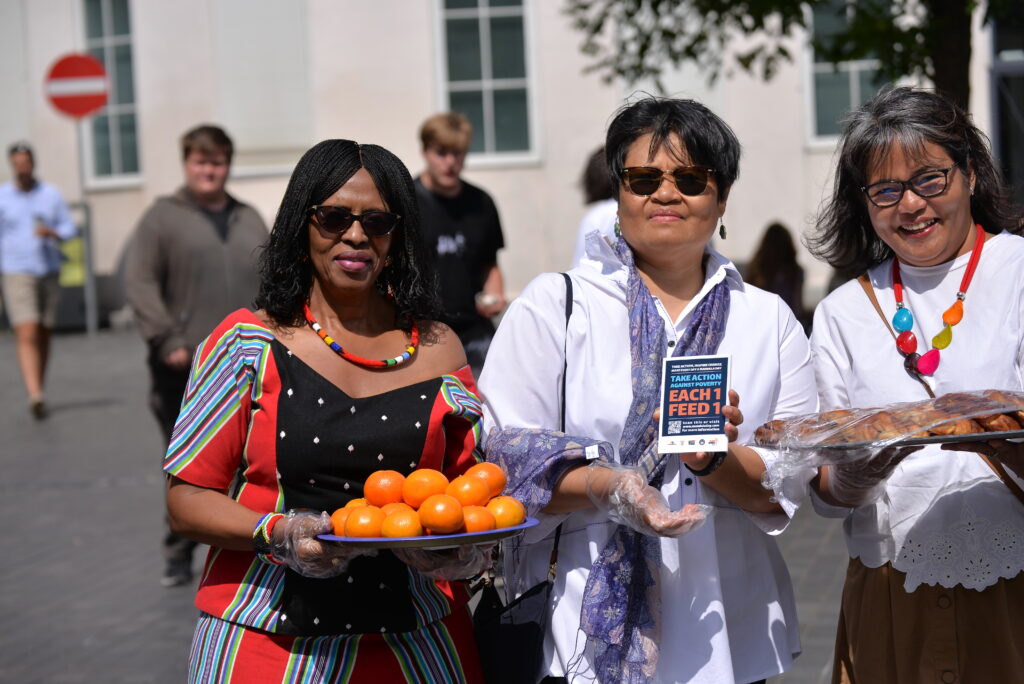MANDELA INTERNATIONAL DAY 2021 EACH ONE FEED ONE
Again, it was both a duty and pure pleasure for Crossing Borders to mark the Nelson Mandela International Day in collaboration with the Embassy of South Africa in Denmark. Mandela Day was declared by the United Nations in November 2009, with the first UN Mandela Day launched on his birthday on 18th July 2010, to acknowledge Mandela’s 60 years of community service and fight for equal rights and justice for all. Born in the, then most unequal country on earth in an unequal world, Mandela paid a huge price for his struggle for freedom and equal rights to live in dignity, including 27 years behind apartheid bars and constant percussion and murder of members of his family and comrades. However, he emerged out of those nearly 3 decades of imprisonment in 1990 with his head high and his heart clean of bitterness and without the need for revenge. Mandela was subsequently elected the first president of democratic South Africa plus Nobel Peace Prize and over 800 international awards on his CV. After serving one term, Nelson Mandela retired into a global statesman, peacemaker, and icon of inspiration for the present and future generations. In line with Mandela’s tradition and this year’s campaign against poverty “EACH ONE FEED ONE”, our celebration of Mandela Day was active and constructive. While Crossing Borders volunteers made hundreds of fresh vegetarian spring rolls and collected hundreds of pieces of pastry from Meyer’s bakery (the best in town) in Copenhagen, the South African Embassy delivered loads of fruits and non-alcoholic drinks. Again, true to the ideals of Nelson Mandela of serving everybody including those we don’t know, we choose one of the busiest squares in Copenhagen, set up and decorate long tables as a street buffet for the passers-by. After short speeches by Her Excellency, the Ambassador of South Africa Ms. Fikile Magubane, and the Director of Crossing Borders Garba Diallo, we set out to serve the people. In addition to the organisers’ staff and volunteers, the ambassadors of Indonesia, Pakistan, and the deputy Ambassador of Ghana and South Africa took part in the action day. There were also several participants from the South American community in Denmark. In his welcome remarks, Crossing Borders Director Garba Diallo highlighted the role of Nelson Mandela in the liberation of both South Africa and the entire African continent. A continent that is still suffering from 500 hundred years of enslavement, colonisation, and post-colonial structural inequality. He added that the ideals of Nelson Mandela are grounded in the humanist principles of the African philosophy of Ubuntu, which the vision and mission of Crossing Borders resonate. Garba said he was happy to see colleagues from Ethiopian, Zambia, Ireland, South Africa, Viet Nam, Brazil, USA, just to mention a few, coming together to make this event a success. Nelson Mandela Day Remarks by H.E. Ambassador Fikile Magubane 18 July 2021 Garba Diallo – Crossing Borders DirectorMembers of the Diplomatic Corps Ladies and gentlemen, Distinguished guest,Fellow South Africans and Africans that are here with us today Let me welcome you to this day in celebrating the annual Nelson Mandela International Day in honour of Nelson Mandela, celebrated each year internationally on 18 July, Mandela’s birthday. The day was officially declared by the United Nations in November 2009, with the first UN Mandela Day held on 18 July 2010. Nelson Mandela’s birthday is on 18 July, and the call is out for people everywhere in the world to celebrate his birthday by acting on the idea that each person has the power to change the world. Making every day a Mandela Day to celebrate Madiba’s life. This gives everyone the opportunity to heed the call to action. It calls for people to recognise their respective individual’s potential to make an imprint and change the world around them for better.For Nelson Mandela International Day 2021, the focus will be on two critical intersecting challenges being faced by South Africa and many other countries – food insecurity and culture of lawlessness. Covid-19 has deepened patterns of poverty and inequality. The numbers of people going hungry are growing. Social cohesion is under severe strain.It is against this background that the Embassy partnered with Crossing Borders (CB), consistent with the Spirit of “Ubuntu” to give food to the homeless. I remain proud of the Embassy’s association with CB as their vision resonates with our Department of International Relations and Cooperation vision, which is championing an African continent, which is prosperous, peaceful, democratic, non-racial, non-sexist, and united and which aspires to a world that is just and equitable.Even after today’s Nelson Mandela Day, may we all continue to lend a hand and contribute to meeting the immediate needs of the most vulnerable in our communities.Let us kindly follow all Danish covid-19 regulations and protocols. Previous Next Written by Sarah Nkandu Media & Communications Specialist.
MANDELA INTERNATIONAL DAY 2021 EACH ONE FEED ONE Read More »











